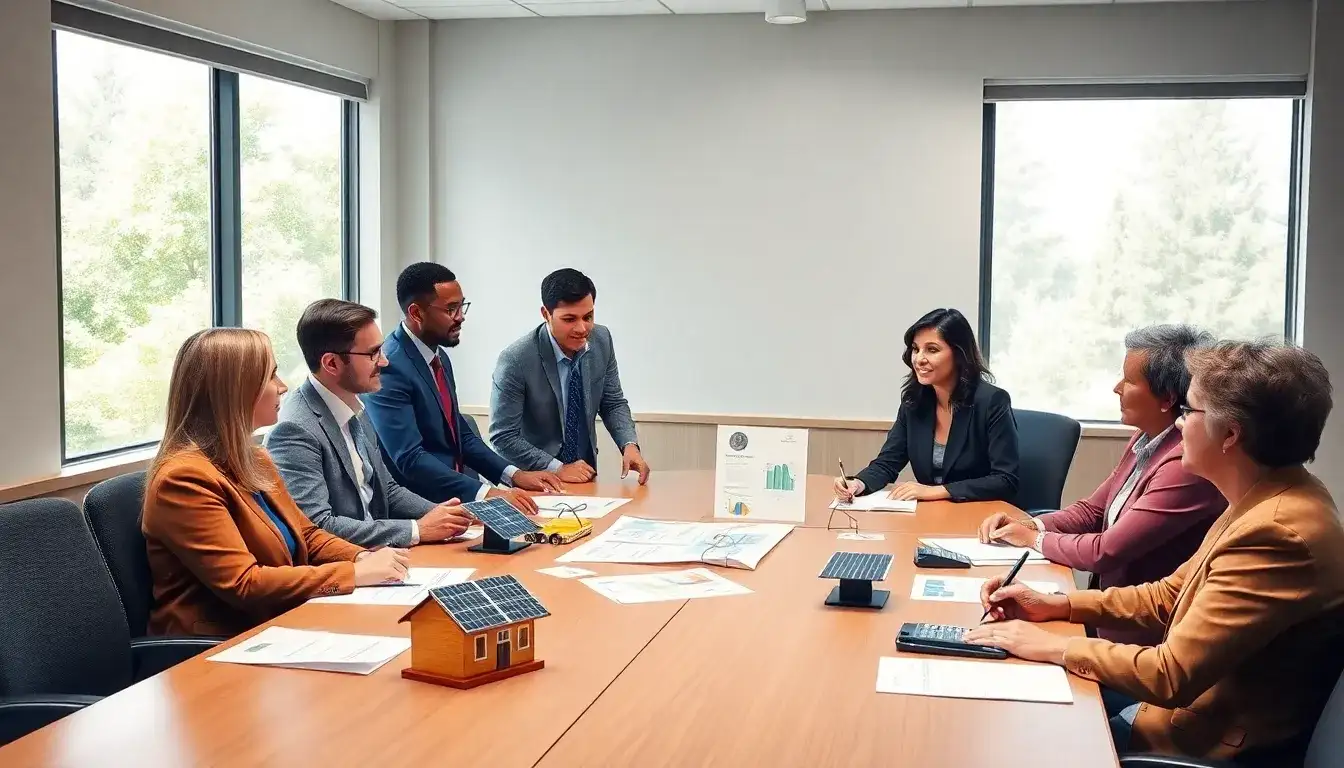
Counties Seek Balance on Solar Policy, Propose Collaborative Solutions
MACo President Jack Wilson emphasizes the organization’s opposition to HB1036/SB931, expressing concerns and suggesting a way forward. In a letter addressed to Senator Brian Feldman, Chair of the Senate Education, Energy & Environment Committee, and Delegate CT Wilson, Chair of the House Economic Matters Committee, both Wilson and First Vice President MC Keegan-Ayer highlight the counties’ opposition to HB1036/SB931, titled The Renewable Energy Certainty Act (RECA), while also proposing potential solutions.
Since the fall of 2023, MACo has been actively collaborating with the administration, industry leaders, and stakeholders to promote Maryland’s renewable energy objectives through transparent, effective, and balanced policies. Although MACo opposes the current legislation, counties remain dedicated to working alongside the General Assembly to tackle the state’s energy crisis.
The MACo Letter
In their letter, they state:
“We write today to respectfully express the unified opposition of Maryland’s 24 counties to HB 1036 / SB 931, The Renewable Energy Certainty Act (RECA). For over a year, MACo has engaged in good faith collaboration with the administration, advocacy groups, and industry leaders to advance Maryland’s renewable energy goals through clear and balanced policies. We remain committed to finding solutions that address our shared challenges and serve our constituents.
While RECA reflects some themes from our discussions, its current form significantly undermines local input, equitable tax policies, and essential community protections. We urge a more balanced approach that ensures progress without compromising the voices and interests of our constituents.”
Counties Oppose RECA Based on Five Core Principles
- Safety – Unregulated energy storage projects pose risks to residents. The extensive use of utility-scale battery storage raises significant public safety concerns, including potential fires, hazardous waste, and toxic fumes. Adequate oversight and fire suppression regulations are essential to ensure that these projects do not endanger nearby homes, schools, and businesses.
- Livability – Clean energy projects should enhance communities rather than compromise them. Meaningful community input is crucial to ensure that renewable energy projects contribute positively to livability, rather than imposing changes without consideration for local residents.
-
Local Taxpayers – Large energy companies should not receive tax breaks while local residents bear the financial burden. Renewable projects must contribute their fair share to avoid draining resources from schools, public safety, and other critical services. A balanced approach is necessary to protect taxpayers and guarantee lasting community benefits.
-
Affordable Housing – Renewable energy goals should not threaten housing affordability. Allowing solar projects to occupy land designated for housing development undermines public investments and displaces residents. Policies must effectively balance energy and housing needs.
-
Efficiency – Renewable energy should be a suitable fit, not a forced one. Rapidly implemented and poorly planned policies waste resources, strain infrastructure, and disrupt communities. Smart siting policies can ensure efficiency while balancing economic growth and environmental stewardship.
While MACo opposes the proposed legislation, Maryland’s counties are wholeheartedly committed to being partners in government and working alongside the General Assembly to achieve better outcomes for shared constituents. Attached to the letter is a set of amendments proposed in good faith to address these concerns, which they hope will be taken into serious consideration.
Proposed Amendments to HB 1036 / SB 931
- Amendment #1: Prohibit the exercise of condemnation rights for the construction of solar energy generating stations.
-
Amendment #2: Define “project area” and clarify what constitutes a solar energy generating system.
-
Amendment #3: Ensure that projects have all necessary federal, state, and local approvals.
-
Amendment #4: Introduce notification requirements for applications.
-
Amendment #5: Establish standards for solar energy generating system applications and set restrictions on where such systems may be located.
Additional amendments address community involvement, environmental impacts, and decommissioning and restoration requirements, ensuring that solar projects are developed responsibly and with community input.
Conclusion
Jack Wilson, President of MACo and Commissioner of Queen Anne’s County, along with MC Keegan-Ayer, First Vice President of MACo and Council Member of Frederick County, look forward to partnering with the General Assembly to find a balanced path forward that aligns with the interests of all stakeholders involved.
For further insights on the energy challenges facing Maryland, tune into the Conduit Street Podcast.
Original article by NenPower, If reposted, please credit the source: https://nenpower.com/blog/counties-advocate-for-balanced-solar-policies-and-collaborative-solutions-in-maryland/


